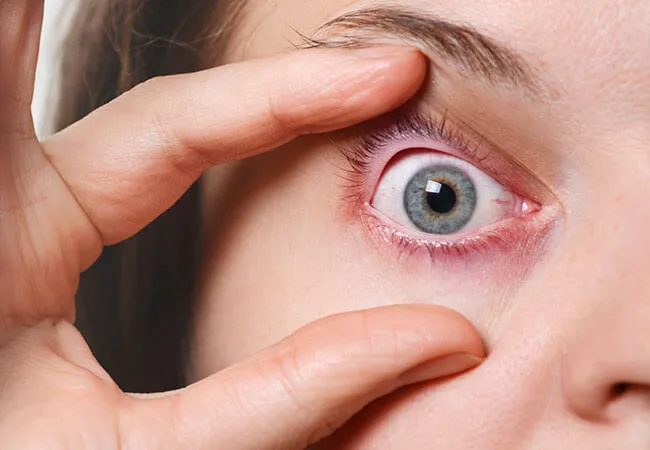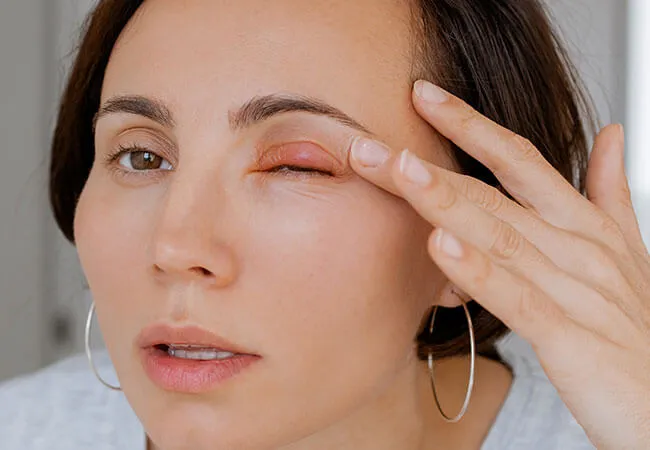


Blepharitis is a common eye infection that affects all age groups. An effective blepharitis treatment is essential to alleviate symptoms and improve eye health. Are you experiencing red and irritated eyes, sticky eyelids, or dandruff-like scales on your eyelids? They might be the symptoms of blepharitis, which is an inflammation of the eyelids.
At Remagin, half of our patients have some degree of this eyelid infection. Though blepharitis can be a chronic infection, our experienced ophthalmologists can help you improve your eye health. Contact us if you want the best blepharitis treatment in Orlando, Windermere, or nearby areas.

Blepharitis is a common and chronic eye condition characterized by inflammation of the eyelids. It typically affects the part of the eyelid where the eyelashes grow. Several factors trigger blepharitis, such as bacterial or fungal infections, poor eyelid hygiene, or underlying skin conditions like rosacea.
The intensity of the blepharitis symptoms may vary depending on the individual. The condition typically includes the following symptoms:
In some cases, blepharitis can lead to eyelash loss and potential scarring of the eyelids if left untreated over an extended period.

Excess bacteria mainly cause blepharitis on the base of your eyelids and eyelashes. Although it's normal to have some bacteria on your skin, having too much can cause problems. The factors contributing to blepharitis are:
Blepharitis has similar symptoms to conjunctivitis and dry eye disease. To effectively treat blepharitis, it is vital to receive a proper diagnosis from an experienced ophthalmologist. The blepharitis treatment process includes:
Blepharitis treatment benefits in various ways. Here's what you can generally expect from blepharitis treatment:
Blepharitis generally does not entirely disappear, but it can be controlled. You typically need to maintain an eyelid cleaning routine to manage blepharitis. If you live in Orlando, Windermere, or the surrounding area and suffer from blepharitis, we are here to assist you. Contact us to get the best and most reliable blepharitis treatment. Our highly qualified ophthalmologists will help you control blepharitis or other eyelid infections.
Progressive stages of blepharitis are:
Blepharitis is typically not caused by a virus; bacteria or parasites often cause it, but other factors also contribute. Staphylococcus species are the most common bacteria causing blepharitis.
Blepharitis is a chronic condition, and there is no "fast" cure for it. Treatment typically focuses on managing the symptoms, reducing inflammation, and improving the overall health of the eyelids. The goal is to control blepharitis rather than completely cure it.
The choice of an eye wash or eyelid cleanser for blepharitis treatment can vary depending on your specific symptoms and your eye doctor's recommendations. There is no one-size-fits-all answer to the "best" eye wash for blepharitis. However, here are some commonly used eye washes and cleansers that are often recommended for managing blepharitis:
Saline Solution
Preservative-Free Eyelid Cleansing Wipes
Lid Scrub Solutions
Baby Shampoo
Hypochlorous Acid (HOCl) Cleansers